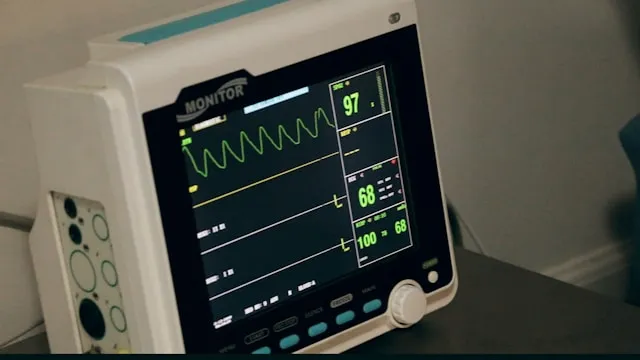It is only natural to think of a cardiac problem while experiencing chest pain. But before you jump to conclusions, you need to be aware of the types and causes of chest pain. Broadly speaking, chest pain is categorised into cardiac and non-cardiac. But how do you evaluate whether it's a cardiac pain or non-cardiac chest pain? To start with, find out if the chest pain is on your left side or the right to tell whether it's a cardiac or a non-cardiac type of chest pain. [box type="shadow" align="" width=""]Usually, left-sided chest pain is associated with heart problems.[/box] Cardiologist Elliott Antman, M.D, senior physician, Birmingham & Women's Hospital, Boston, says, "In general, the chest pain linked to a heart attack feels like a crushing sensation beneath the breast bone, and is often accompanied by nausea, vomiting, sweating, light-headedness, and an unexplained feeling of dread." The chest pain may emit down the left side of the chest and affect the left arm — or it may spread down the right arm, or limit itself to the chest, neck, or jaw. Non-cardiac chest pain usually is milder and seldom spreads elsewhere. According to Harvard Health Publications, the table below categorises general chest pain symptoms into what's more likely to be a heart attack and what kind of chest pain is less likely to be symptoms of heart attack. Questions to ask yourself:
Source: Harvard Health PublicationsChest pain, whether cardiac or non-cardiac, left-sided or right, is always a major cause of concern. Based on the above table, if you are experiencing the kind of chest pain which is less likely to be a heart attack, you're lucky that it's not a cardiac issue. [box type="shadow" align="" width=""]But what many people don't understand that even right-sided chest pain should ring alarm bells.[/box] Although the good news is that most causes of the right-sided pain are not related to heart problems, in rare cases, angina can be a cause of right-sided chest pain. Several lung problems and gastric problems can be the causes of right-sided chest pain. Lung disorders linked to right-sided chest pain comprise pneumothorax, pleurisy, asthma, pulmonary embolism and pneumonia. As a lung disorder, this pain tends to worsen when the person breathes deeply, coughs or does moderate physical activity. The pain experienced is a sharp stabbing sensation in the chest. A widely found condition called GERD (gastroesophageal reflux disease) is a frequent cause of non-cardiac chest pain. Having said this, even a normal person without any cardiac history can experience fleeting aches in the chest area. Listed below are the kinds of other chest pains that are unlikely to signal a heart attack. In case of any risk factor one should definitely visit one of the best heart hospitals in India.
What's more likely to be a heart attack | What's less likely to be a heart attack |
| Is the sensation of pain, or of pressure, tightness, squeezing, or burning? | Is the pain sharp, prickly and knifelike brought on by breathing or coughing? |
| Is gradual onset of pain over the course of a few minutes? | Is it a sudden stabbing pain that lasts only a few seconds? |
| Is the pain in diffuse area, including middle of chest? | What's the location of the pain? Is it clearly on one side of the body or the other? |
| Does the pain spread into the left arm, neck, jaw, or back? (If this symptom and the first three occur, you need to get to the nearest emergency room) | If the pain is localised to one small spot, it is less likely to be a heart attack |
| Is pain or pressure accompanied by difficult breathing patterns, cold sweats, or sudden nausea? | If the pain lasts for several hours or days without any other symptoms |
| Does the pain or pressure appear during or after physical exertion or emotional stress (heart attack) or do you experience it while you're resting? (unstable angina) | If the pain can be reproduced by pressing on the chest or with body motion, it is less likely to be heart attack |
- Momentary chest discomfort often described as a lightning bolt or an electrical shock
- Pinpoint chest discomfort that worsens with positional changes and deep breathing
- Chest discomfort that seems to get better with some exercise
"When people are having a heart attack, they typically cannot find a position that relieves the discomfort. Nor do they find relief by ingesting liquids, popping antacids, or taking deep breaths. When heart discomfort or pain does develop, it's unrelenting."Also, read about Chest pain of undetermined origin (CPUO) Therefore, whatever could be the cause and type of your chest pain, let your doctor know. For more information and FREE personalized guidance speak to Credihealth medical experts at +918010994994 or click the link below

Reviewed by







